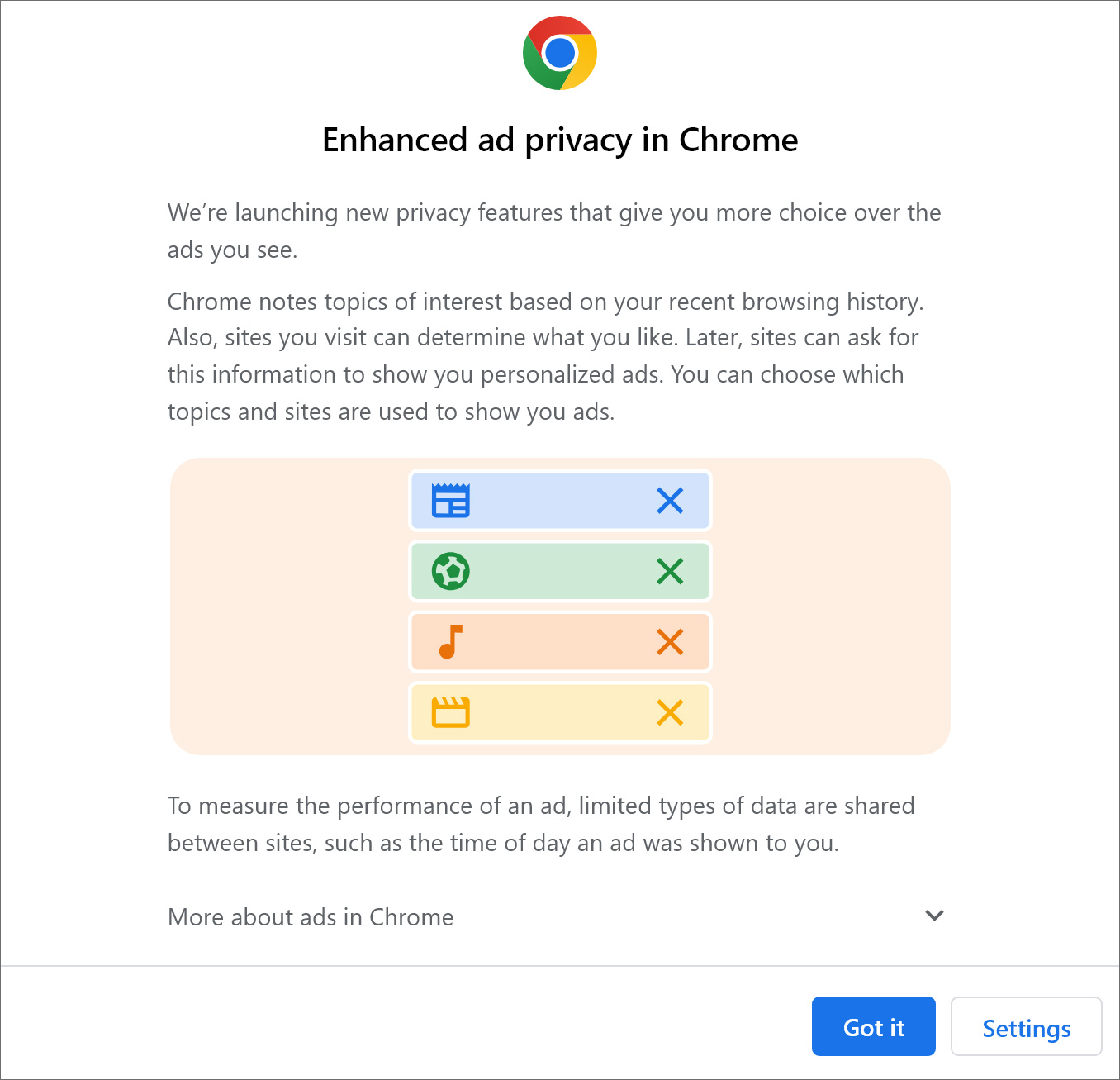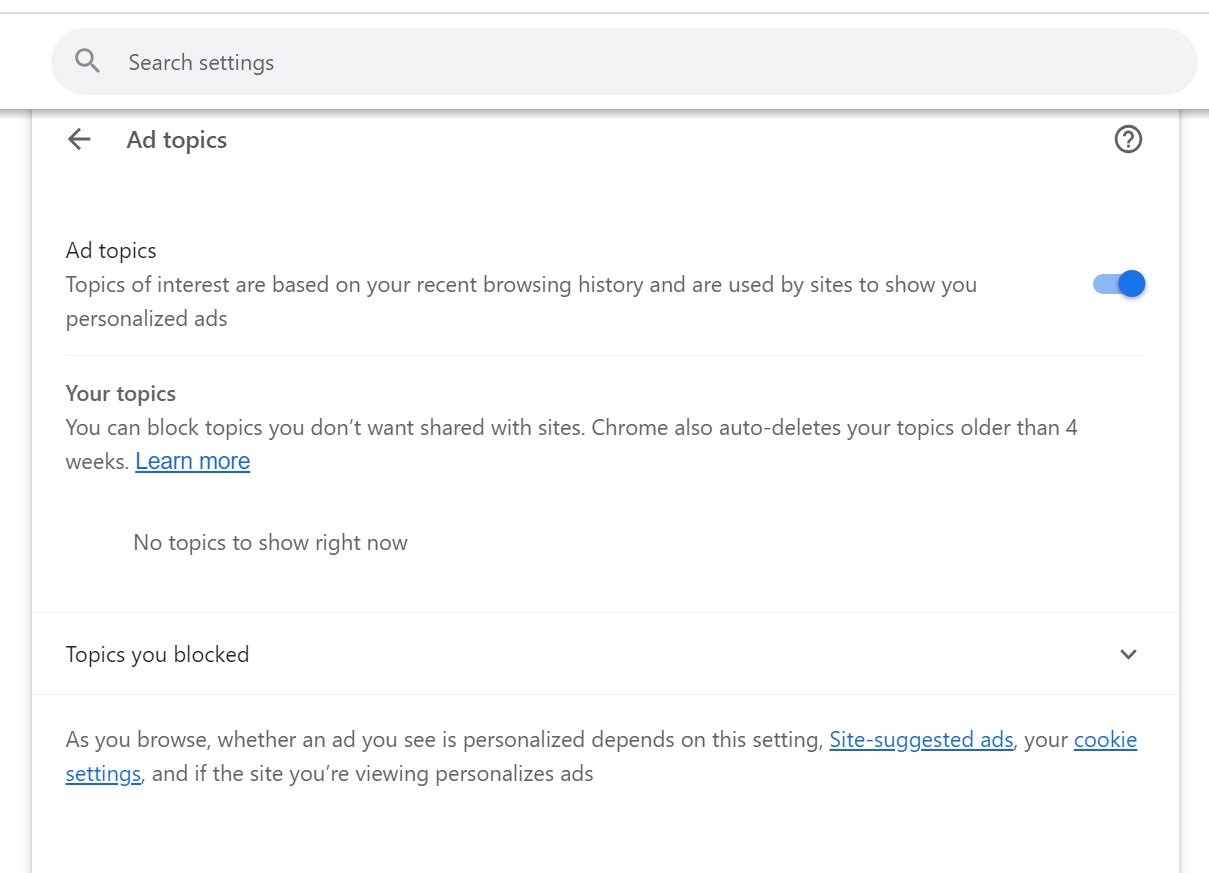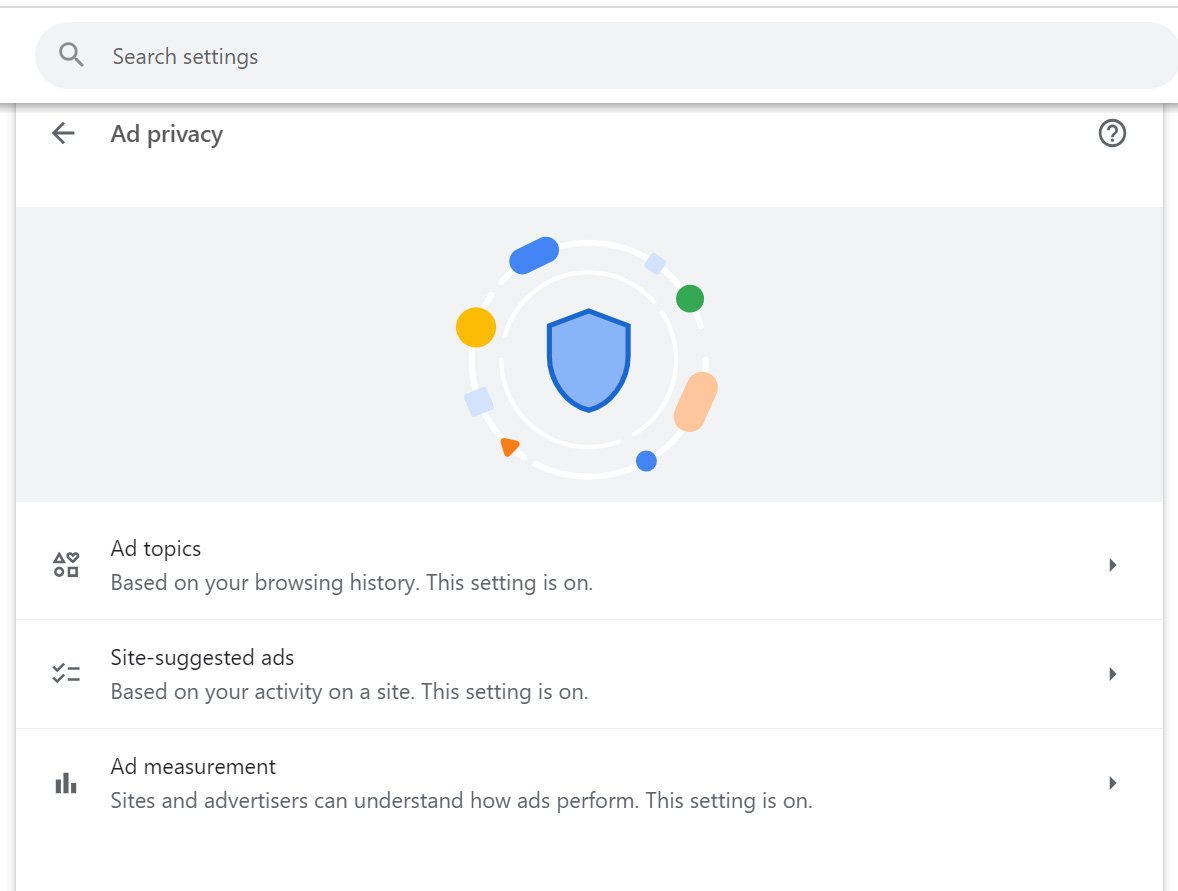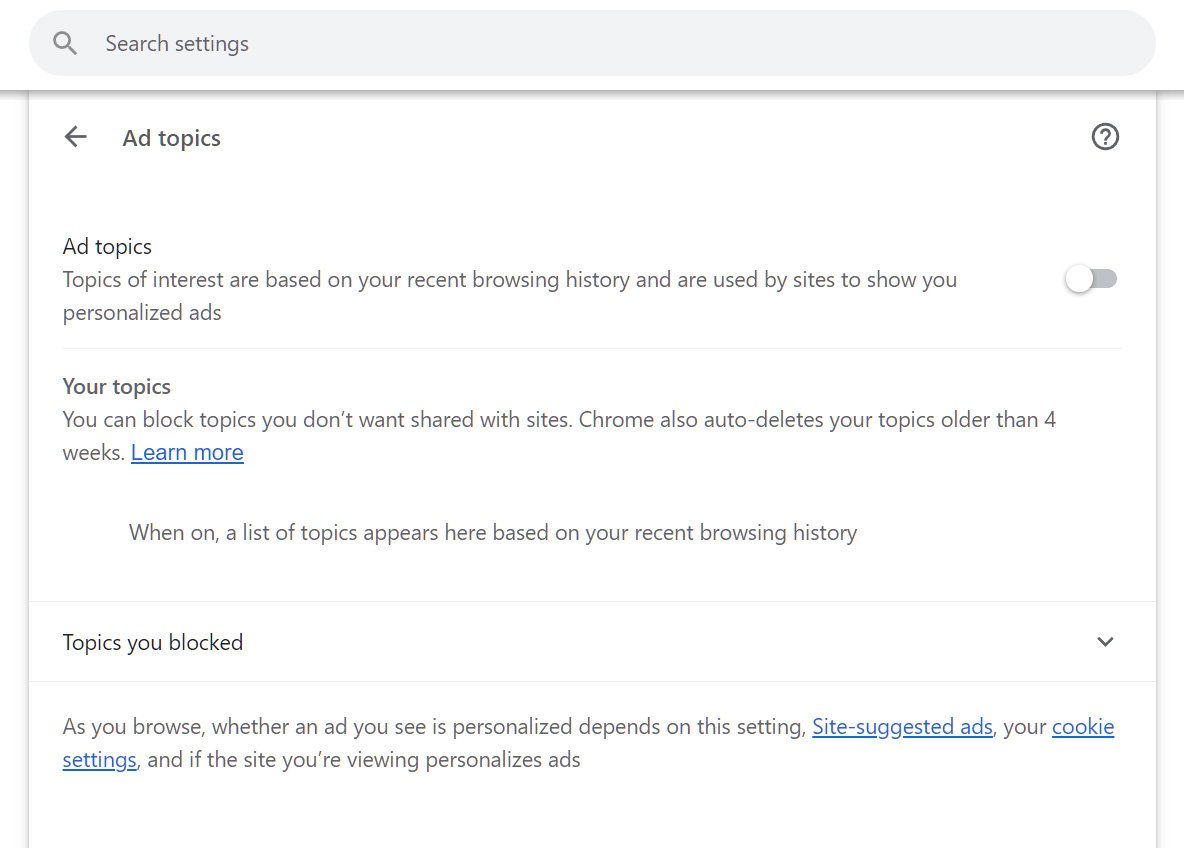
Google has began to roll out its new interest-based promoting platform referred to as the Privateness Sandbox, shifting the monitoring of consumer’s pursuits from third-party cookies to the Chrome browser.
When beginning the Google Chrome browser, customers will now see an alert titled ‘Enhanced advert privateness in Chrome’ that briefly describes the brand new advert platform.
“We’re launching new privateness options that offer you extra selection over the advertisements you see,” reads the brand new Chrome alert.
“Chrome notes subjects of curiosity primarily based in your latest searching historical past. Additionally, websites you go to can decide what you want. Later, websites can ask for this info to point out you customized advertisements. You may select which subjects and websites are used to point out you advertisements.”

Supply: BleepingComputer
This alert provides two buttons, ‘Obtained it’ and ‘Settings,’ which many customers complain are complicated and misleading, as the brand new promoting platform shall be enabled in Google Chrome whatever the button you click on.

Supply: BleepingComputer
It started with third-party cookies
Earlier than we get into Google’s Privateness Sandbox, it’s important to grasp what a third-party cookie is and the way we received to the purpose of making a brand new interest-based promoting platform.
A 3rd-party cookie is a browser cookie created by an internet area apart from the web site (equivalent to an advertiser) you’re presently visiting and is often dropped by monitoring scripts and ads. These cookies can then be used to trace you on different websites using code from the identical third-party area, permitting advertisers to find out what subjects you have an interest in, what you prefer to buy, and your searching habits.
As a part of the European Union’s Common Information Safety Regulation (GDPR) act, which went dwell in 2018, advertisers have been required to restrict the usage of third-party cookies with out the permission of customers.
This has led to the fixed bombardment of cookie consent messages you see whenever you go to an internet site, together with BleepingComputer, asking your permission to permit third-party cookies earlier than an advertiser may present interest-based promoting.
In 2019, Mozilla Firefox started blocking third-party cookies by default, adopted by Apple Safari in 2020, hanging an enormous blow to the promoting trade, with Google being the most important.
To beat the reducing use of third-party cookies and proceed offering interest-based promoting, Google launched a brand new platform referred to as Federated Studying of Cohorts (FLoC), which finally morphed into Matters, a key function of the brand new Privateness Sandbox.
Whereas Google states that the Privateness Sandbox is designed to extend privateness by letting your internet browser compute your pursuits regionally somewhat than by means of cookies, Apple, Mozilla, and the WC3 TAG have cited quite a few points with the proposal.
“It is also clear from the positions shared by Mozilla and Webkit that there’s a lack of multi-stakeholder help,” explains Amy Man from WC3 TAG.
“We stay involved about fragmentation of the consumer expertise if the Matters API is carried out in a restricted variety of browsers, and websites that want to use it forestall entry to customers of browsers with out it (a distinct situation from the consumer having disabled it in settings).”
Google’s Privateness Sandbox
The Privateness Sandbox is a brand new promoting platform created by Google designed to create a extra personal manner of monitoring a consumer’s pursuits for promoting.
As an alternative of utilizing third-party cookies positioned by totally different advertisers and monitoring corporations, the Privateness Sandbox will regionally compute a consumer’s pursuits instantly throughout the browser, presently solely utilized in Google Chrome.
Advertisers utilizing the brand new Privateness Sandbox can request guests’ pursuits to point out a related advert, with the browser replying with nameless knowledge that lists the classes the consumer is excited about.
These pursuits are computed from the consumer’s searching historical past, the place are websites are related to numerous topic classes, equivalent to School sports activities, Razors & shavers, Ice skating, Comics, Bodybuilding, and many others.
The Privateness Sandbox is damaged up into three parts named Advert Matters, Website-suggested advertisements, and Advert Measurement, as described under.
Advert Matters is the primary element of the Privateness Sandbox and is used to generate customers’ pursuits primarily based on their searching historical past to point out customized advertisements.
These pursuits are generated by visiting web sites, that are related by Google to be in a sure class. When you go to many websites associated to a selected class or subject, the browser will affiliate you with these pursuits.
Google says that the browser will delete your computed pursuits on a rolling foundation every month and can proceed to refresh till you take away them.
Customers can see and delete their generated pursuits and the websites that outline them by going into Settings > Privateness & safety > Advert privateness > Advert subjects.
Website-suggested advertisements is a brand new approach to “remarket” ads to a consumer by permitting an internet site to inform Chrome what kind of commercial ought to be proven to a customer.
While you go to different websites, an advertiser can request the consumer’s curiosity group, which might then present the instructed commercial.
For instance, this permits advertisers to point out you advertisements for video playing cards after visiting a video card producer’s web site.
Customers can see and block the websites that wish to present you advertisements by going into Settings > Privateness & safety > Advert privateness > Website-suggested advertisements.
Advert Measurement permits websites and advertisers to measure the efficiency of their ads by storing knowledge within the internet browser, which is then shared with different websites you go to.
The information transmitted contains the time of day an advert was proven, whether or not an advert was seen or clicked, and the way the advert was displayed.
Google says this advert measurement knowledge is often deleted out of your machine and that your searching historical past is saved personal.
Google informed BleepingComputer that the Privateness Sandbox platform makes use of Oblivious HTTP Relays to transmit knowledge between the browser to advertisers, offering additional privateness for customers.
These relays forestall Google from associating customers’ IP addresses with their curiosity knowledge and strip pointless request headers from any connections.
Google says that they are going to be testing the Privateness Sandbox function by means of 2024, with 1% of third-party cookies deprecated beginning in Q1 2024, with them finally being solely disabled by default in This fall 2024.
disable Google’s Privateness Sandbox
If you don’t want to use Google’s Privateness Sandbox, it’s attainable to disable it in Google Chrome.
To disable the Privateness Sandbox in Google Chrome, comply with these steps:
- Go to Settings > Privateness & safety > Advert privateness and you’ll be proven a display exhibiting every particular person function.

Google Chrome Advert privateness settings
Supply: BleepingComputer - To disable every function, click on on Advert Matters and toggle the function so its disabled.

Advert Matters function disabled
Supply: BleepingComputer - Do the identical factor for Website-suggested advertisements and Advert measurement additionally to show these options off.
- As soon as all three choices are disabled, the Privateness Sandbox function shall be disabled in its entirety.
Now you can shut the Chrome Settings web page and use the browser as common.


